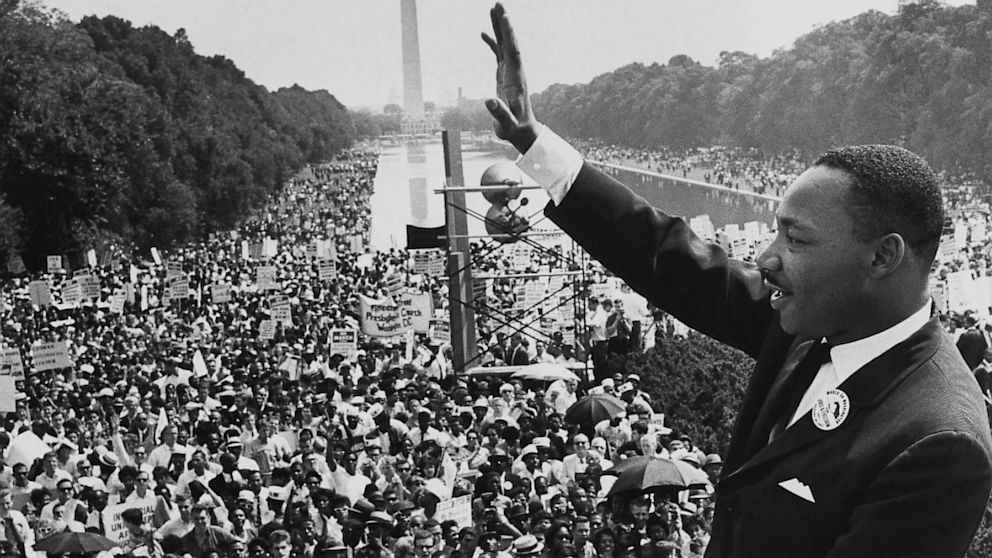We have much more to do and your continued support is needed now more than ever.
Honor the Legacy of Dr. King by Standing Up for Voting Rights

A healthy environment relies on a healthy democracy, where everyone can access the sacred right to vote and have that vote counted. That’s why the National Wildlife Federation is joining with our allies to demand the passage of the John Lewis Voting Rights Advancement Act and the Freedom to Vote Act.
Over 50 years ago, John Lewis and Rev. Dr. Martin Luther King, Jr marched, lobbied the White House and Congress, faced arrest, bled, and fought for the passage of the Voting Rights Act. Now, we must honor their memories by defending their legacy. Just over a year ago, on January 6th, we witnessed the frightening fragility of our democracy when a violent insurrection threatened to overturn the results of a free and fair election. Since then, 19 states across the country have passed over 30 laws to make it more difficult for Americans to vote — disproportionately impacting Black, Latinx, Indigenous, Asian-American, Muslim, immigrant, and other marginalized communities.
What are these two bills and what voting rights protections do they provide?
Freedom to Vote Act
The Freedom to Vote Act is a transformational piece of legislation that would restore voting access across the country — counteracting all of the voter suppression laws that have passed at the state level in the last year. For example, it would require all 50 states to offer mandatory early voting at least two weeks prior to election day. In fact, it would require states to ensure that lines last no longer than 30 minutes and would prevent restrictions on providing food or water to individuals who are waiting to vote. The bill also protects access to the vote for individuals with disabilities through a variety of safeguards and establishes a national standard to allow for mail-in voting that is secure and accessible for all Americans, among other protections.
John Lewis Voting Rights Advancement Act
The John Lewis Voting Rights Advancement Act restores the legal protections of the 1965 Voting Rights Act by preventing legal changes to voting rules that discriminate on the basis of race or ethnicity from being implemented and reestablishing the ability of voters to challenge laws that are discriminatory.
When states are allowed to disenfranchise and limit the political power of marginalized groups, they perpetuate the long-standing inequities that have led to communities of color and low-income communities facing the devastating health and economic consequences of environmental pollution. We cannot protect wildlife, fight climate change, or achieve environmental justice without protecting the right to vote for all Americans, especially those targeted by both voter suppression and environmental injustice.
The Senate is in the process of considering these bills, but if they fail to act in the coming weeks, we could risk the erosion of our voting rights and our democracy for decades to come. Following Reconstruction, states passed Jim Crow laws that, through violence or legal sanction, prevented Black people from accessing the vote for over 100 years, until the passage of a federal law — the 1965 Voting Rights Act. Now, over the last decade, we have witnessed another wave of state laws that once again erode the voting rights of Black, Latinx, Indigenous, Asian-American, Muslim, immigrant, and other marginalized communities — a wave that has accelerated since the violence on January 6th and over the last year. We cannot risk waiting another 100 years to see voting justice restored, we must act now.
You can take action today in support of this legislation by reaching out to your Senators and asking them to vote today in support of the Freedom to Vote Act and the John Lewis Voting Rights Advancement Act.
TAKE ACTION




















